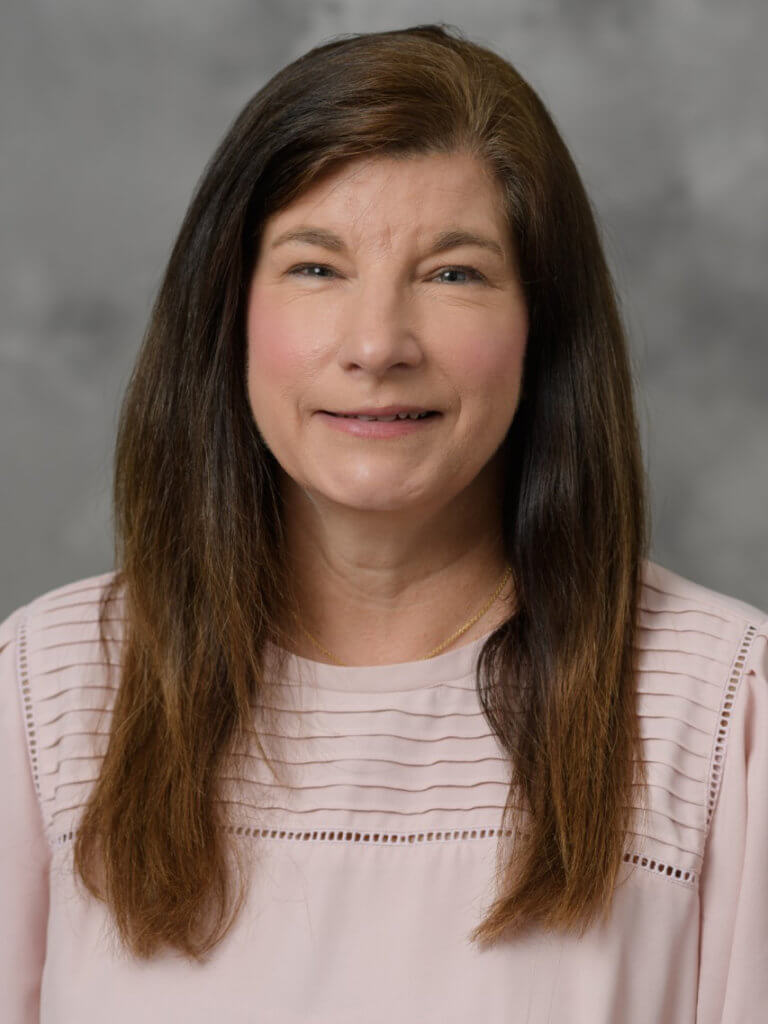
New technology from innovators at Purdue University and the Indiana University School of Medicine may one day help patients who suffer devastating vocal injuries from surgery on the larynx. A collaborative team consisting of Purdue biomedical engineers and clinicians from IU has tissue-engineered component tissue replacements that support reconstruction of the larynx.
The innovation team is led by Stacey Halum, MD, FACS, a fellowship-trained laryngologist specializing in head and neck surgery, along with Sherry Harbin, PhD, who holds a joint appointment as a professor of basic medical sciences in the Purdue University College of Veterinary Medicine and professor of biomedical engineering in the Weldon School of Biomedical Engineering. The team’s work is published in The Laryngoscope.

The larynx is a very complex human organ consisting of outer cartilage for structural support, inner muscle that contracts to permit voicing, swallowing, and breathing, and inner vibratory lining. Currently, thousands of patients each year with laryngeal cancer or trauma require a procedure called total laryngectomy in which the entire larynx is removed, and patients are left without a human voice and breathing through a hole in their neck called a stoma.
“There are very few options for laryngeal reconstruction and no options for restoration of laryngeal appearance, structure and function,” said Dr. Halum, an associate professor in the IU School of Medicine Department of Otolaryngology-Head and Neck Surgery who has an adjunct appointment in Purdue’s Department of Speech, Language, and Hearing Sciences and sees patients at the IU Health Voice Center in Carmel, Ind. “While surgeons occasionally use local or free tissue transfers to repair laryngeal defects, these local or regional tissues just ‘plug holes’ or close the defects without really restoring function because the transferred tissues are not dynamic – they do not move or contract. They also tend to lose bulk and scar over time.”
The research team used a patented collagen polymer developed by Dr. Harbin’s lab to fabricate the three regenerative replacement tissues for the laryngeal reconstruction procedure. “Our approach is unique in that we are using customized engineered tissue replacements, with the muscle component fabricated using the patient’s own muscle progenitor cells,” Dr. Harbin said. “We believe these engineering approaches will provide patients with better options for reconstruction so that total laryngectomies become something of the past.”
Dr. Harbin and Dr. Halum believe the technology has widespread applications for custom fabrication of engineered tissue replacements for tissue restoration in other parts of the body. Dr. Harbin founded GeniPhys, a Purdue startup focused on the commercialization of the collagen polymer technology.
The research project is funded by the National Institute of Deafness and Other Communication Disorders. The innovators worked with the Purdue Research Foundation Office of Technology Commercialization to patent the technology. The researchers are looking for partners to continue developing and commercializing their technology. For more information on licensing and other opportunities, contact Dr. Harbin at harbins@purdue.edu.
Click here to view a complete news release.
